International Day Against Nuclear Tests
29 August 2017
The United Nations General Assembly designated 29 August as the International Day Against Nuclear Tests in resolution 64/35 (2009). Proposed by Kazakhstan, the date is highly symbolic marking both the anniversary of the first Soviet nuclear test in 1949 and the closure of the Semipalatinsk nuclear test site. In the intervening years, 456 tests were carried out at that site, with devastating consequences. Globally, more than 2050 nuclear tests were carried out between 1945 and 1996.
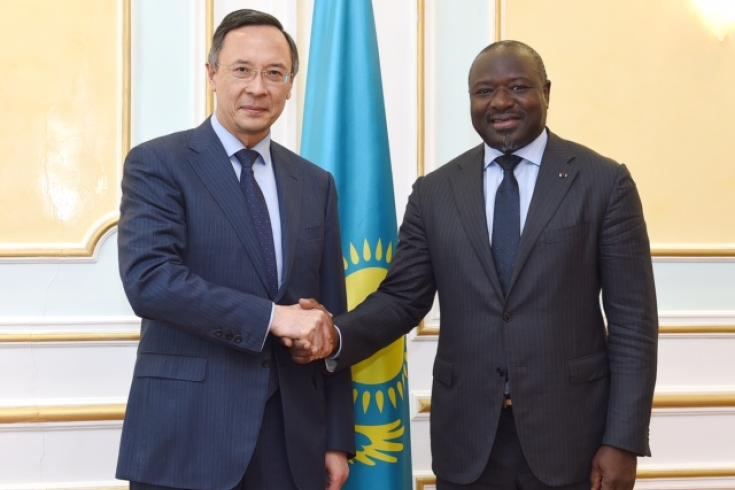
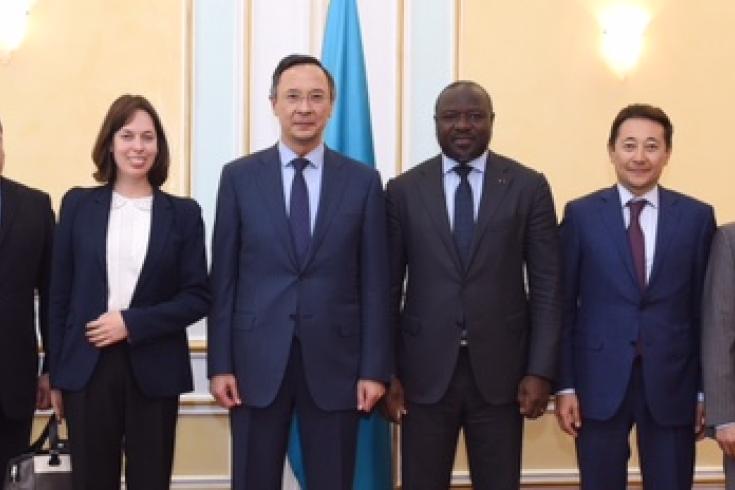
“Let’s join forces to ensure that every day is a day against nuclear testing”
In 1996, the Comprehensive Nuclear-Test-Ban Treaty (CTBT) was opened for signature, in order to relegate all nuclear testing to the history books once and for all. Although not yet in force, the Treaty is widely considered a success with only nine nuclear tests having been carried out since its opening for signature. The Comprehensive Nuclear-Test-Ban Organization (CTBTO) is charged with verifying adherence to the Treaty with a global network of monitoring stations – the International Monitoring System (IMS).
“Last year, the Security Council adopted its first resolution focused solely on nuclear testing. I hope that represents a new momentum towards taking the essential next step in ridding the world of the menace of nuclear weapons.”
In Astana, Kazakhstan, Executive Secretary Lassina Zerbo participated in an event dedicated to the opening of the Low Enriched Uranium (LEU) Bank, under the auspices of the International Atomic Energy Agency (IAEA). In his , he said: “While we are proud of the many successes, 29 August also serves as a reminder that banning nuclear tests remains unfinished business. As we work to consign nuclear testing to history, we must not forget the importance of trust at the regional and international levels.” At this ceremony, President Nursultan Nazarbayev “pointed to some countries with nuclear technologies that have not yet signed or ratified the Comprehensive Test Ban Treaty, and appealed to their leaders to join the Treaty without delay.” In the run-up to the International Day, the 62nd Pugwash Conference on "Confronting New Nuclear Dangers" took place is Astana, Kazakhstan. Executive Secretary Zerbo delivered a keynote speech and participants issued a final declaration referencing the importance of the entry-into-force of the CTBT.
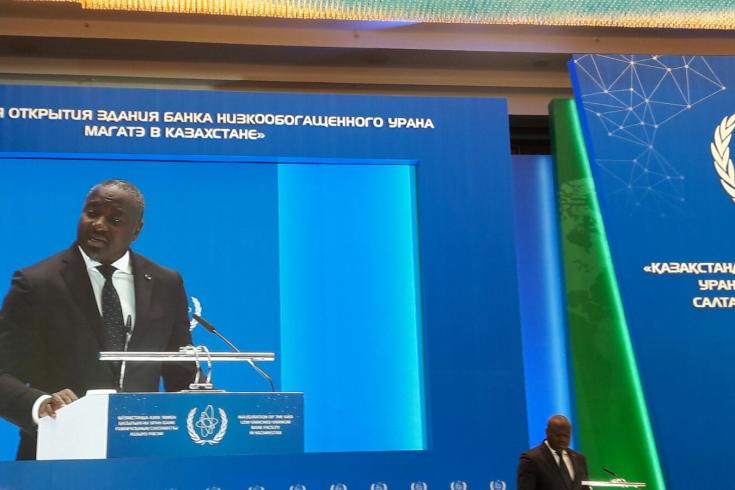
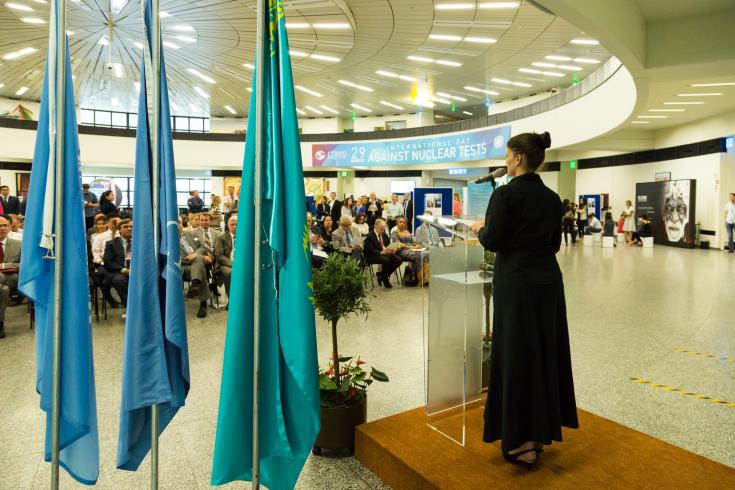
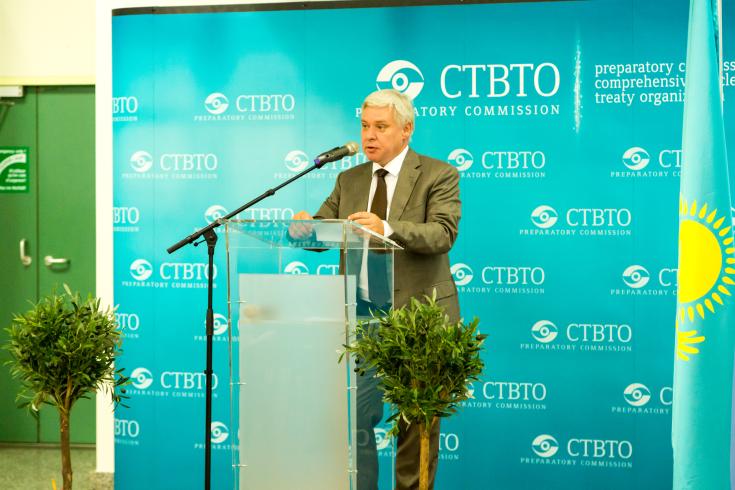
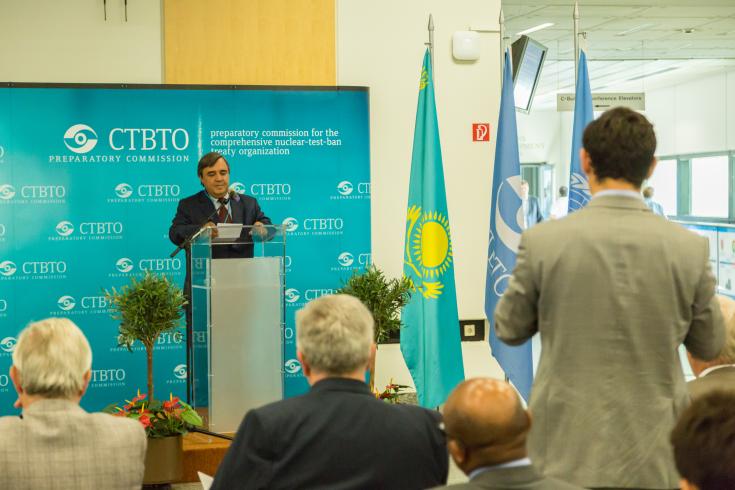
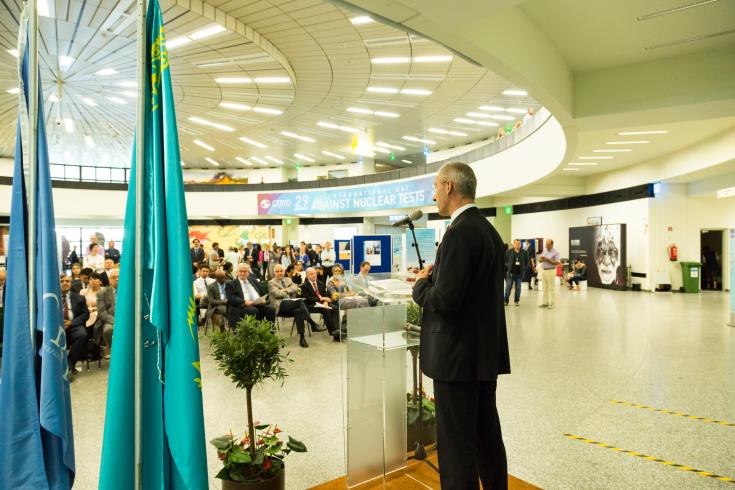
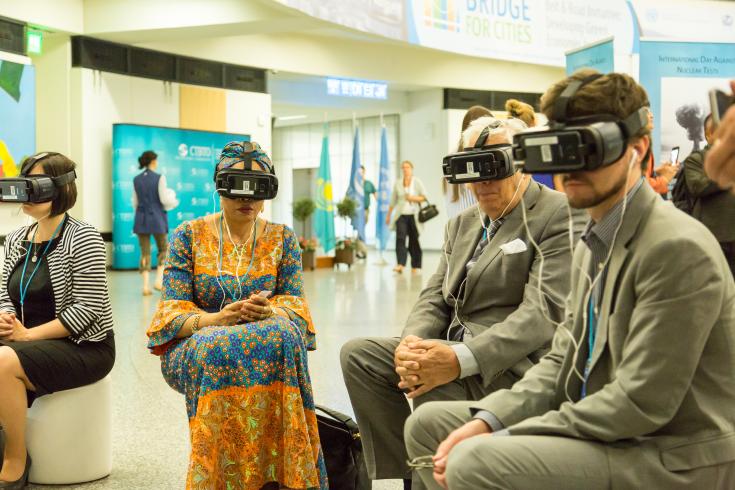
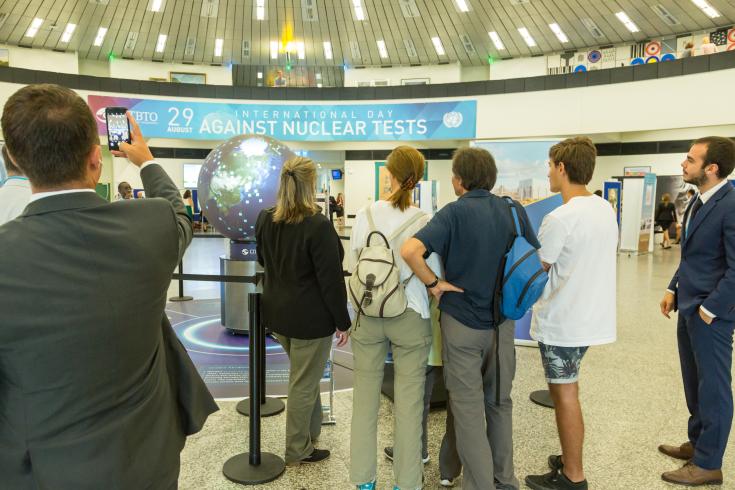
The CTBT should serve as a common denominator and a solid basis for continuing dialogue and expanding cooperation.
In Geneva, International Organizations and civil society marked the International Day with a panel discussion featuring, among others, the Honorary Ambassador for the ATOM project, Karipbek Kuyukov. At its headquarters in Vienna, CTBTO together with the Permanent Mission of Kazakhstan, and supported by the United Nations Information Service, organized an exhibit and commemorative event for delegates, staff and civil society.
In New York, the President of the United Nations General Assembly Peter Thomson convened an informal meeting to observe the International Day (30 August). The United Nations High Representative, Izumi Nakamitsu said: “It is beyond time that we bring the CTBT into force, thereby making the legally binding prohibition on nuclear explosive tests a permanent reality. I call upon all of you in this room, as well as others commemorating the International Day around the world, to once again channel your efforts towards this end—and to completing our journey to this critical milestone for a world free of nuclear weapons.”
The CTBT Group of Friends also issued a statement welcoming the advances made by the CTBTO in ensuring “that the Treaty’s verification regime is robust and world-class. It has proven its ability to promptly and accurately detect nuclear tests no matter where they are carried out.”
In New York, the President of the United Nations General Assembly Peter Thomson convened an informal meeting to observe the International Day (30 August). The United Nations High Representative, Izumi Nakamitsu said: “It is beyond time that we bring the CTBT into force, thereby making the legally binding prohibition on nuclear explosive tests a permanent reality. I call upon all of you in this room, as well as others commemorating the International Day around the world, to once again channel your efforts towards this end—and to completing our journey to this critical milestone for a world free of nuclear weapons.”
The CTBT Group of Friends also issued a statement welcoming the advances made by the CTBTO in ensuring “that the Treaty’s verification regime is robust and world-class. It has proven its ability to promptly and accurately detect nuclear tests no matter where they are carried out.”
"The CTBT, when in force, will further contribute substantively to the objective of a world without nuclear weapons by constraining their development and qualitative improvement. Pending the entry into force of the Treaty, we call upon all States to maintain the moratorium on nuclear weapon test explosions and other nuclear explosions and to refrain from any action that would undermine the Treaty’s object and purpose."
28 Aug 2017